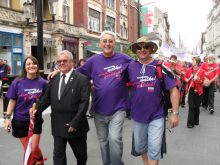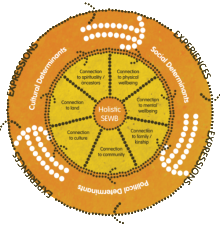 It is important to note the close similarity in the nature of elements that underlie recovery from serious substance use problems and recovery from mental health problems.
It is important to note the close similarity in the nature of elements that underlie recovery from serious substance use problems and recovery from mental health problems.
An excellent 2007 paper published by the Scottish Recovery Network by Wendy Brown and Niki Kandirikirira, entitled Recovering Mental Health in Scotland: Report on Narrative Investigation of Mental Health Recovery, provides important insights into the latter. This research involved the recovery narratives of 64 individuals in Scotland who identified themselves as being in recovery or recovered from a long-term mental health problems. Here is what the authors write in the Executive Summary of the Report (NB. That I have broken up one long paragraph for ease of reading online]:
‘Across the stories consistent internal and external elements could be found. For a recovery journey to begin and continue to prosper, narrators accounts of their experiences suggest that six basic internal (individual and self controlled) elements were required (though not necessarily in this order and not necessarily seen in every case):

 When I first became interested in Indigenous healing a number of years ago, I did a great deal of reading about the healing of trauma and intergenerational trauma. I summarised what I considered to be 12 principles of healing, which are relevant to Aboriginal people here in Australia and other Indigenous peoples around the world. I first posted about these principles on
When I first became interested in Indigenous healing a number of years ago, I did a great deal of reading about the healing of trauma and intergenerational trauma. I summarised what I considered to be 12 principles of healing, which are relevant to Aboriginal people here in Australia and other Indigenous peoples around the world. I first posted about these principles on 





